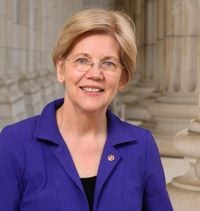In a sweeping and controversial shift, the Trump administration has dramatically scaled back enforcement of the Fair Housing Act, a cornerstone of American civil rights law that has, for nearly sixty years, protected individuals from discrimination in housing based on race, gender, religion, disability, or familial status. According to extensive reporting by The New York Times and corroborated by internal documents, whistleblowers, and career staff within the Department of Housing and Urban Development (HUD), the administration’s changes have left the agency’s fair housing office hobbled, its staff decimated, and its ability to protect vulnerable Americans sharply curtailed.
At the heart of the controversy are a series of internal memos, emails, and personnel decisions that, according to current and former HUD officials, have made it nearly impossible for the agency to investigate and prosecute landlords, real estate agents, lenders, and others who engage in illegal discrimination. One Trump appointee described decades of housing discrimination cases as “artificial, arbitrary and unnecessary,” while a HUD memo instructed employees to abandon “tenuous theories of discrimination” and to remove research or content “contrary to administration policy.”
The impact of these policy changes has been immediate and profound. HUD’s fair housing office, once staffed by 31 employees, is expected to shrink to just 11 after mandatory transfers take effect by October 5, 2025—a staggering 65% reduction. Of the office’s original 22 lawyers, only six will remain, according to staff members who have received reassignment notices. The cuts have been justified as efficiency measures under the Department of Government Efficiency initiative, but critics argue the reductions go far beyond standard belt-tightening. As one internal email put it, the work of the office was “not a priority of the administration.”
For those on the front lines, the consequences have been devastating. “I never thought I would be in this position,” said Paul Osadebe, a fair housing lawyer who is among those being reassigned. “We have people who are trying to destroy a baseline that people relied on.” Osadebe’s comments echo the sentiments of other career staff, many of whom have described a workplace where lawyers are now blocked from communicating with clients without prior approval from Trump appointees, and where citing certain past civil rights cases as legal precedent is now forbidden.
The chilling effect has extended well beyond internal morale. Since President Trump took office, HUD has issued just four formal charges of housing discrimination—a precipitous drop from the typical 35 per year. Legal settlements for Americans who accused housing providers of discrimination have also plummeted. In each of the last five years, the fair housing office typically collected between $4 million and $8 million for victims. From January to July 2025, that figure was less than $200,000, according to Jacy Gaige, until recently the office’s director of enforcement.
“With one email, the entire process was shut down,” Gaige told The New York Times. “It essentially stopped the settlement process, which is time sensitive because complainants and respondents come to an agreement about what they want to do to resolve a case. And often that is driven by specific deadlines that are occurring in people’s lives.” Hundreds of pending cases have been frozen or dropped, even in instances where accusations of discrimination had been substantiated, according to internal communications and interviews.
The changes began almost immediately after Trump’s inauguration. During his first week in office, executive orders targeted diversity, equity, and inclusion (DEI) programs across government. HUD’s fair housing staff received a stop-work order via email, directing them to “cease and desist all work activities associated with environmental justice, diversity, equity, and inclusion.” The office’s work was increasingly characterized as an offshoot of DEI—a program the administration viewed as excessive and outside its priorities.
These policy shifts have had particularly severe consequences for survivors of domestic violence seeking housing assistance under the Violence Against Women Act. About 500 women a year reach out to HUD for help under this law, but with only two of the six remaining lawyers experienced in these cases, their prospects for timely assistance have dimmed. “These are life and death requests,” Osadebe emphasized. “These women are legitimately in mortal danger, and often without the government stepping in, nothing will be done.”
Meanwhile, the Trump administration has defended its actions. HUD spokeswoman Kasey Lovett called the allegations “patently false,” insisting that the department “is using its authority to uphold the law, protect the vulnerable, and ensure meaningful access to housing.” Lovett blamed any stagnation on what she described as a “deeply inefficient case system” inherited from the Biden administration, asserting that the department had handled over 4,100 cases since Trump took office—on par with previous years, if one accounts for cases that carry over from year to year. However, Lovett did not address the sharp decline in formal charges or legal settlements.
Career lawyers and advocates dispute the administration’s narrative, pointing to new procedures that have stripped career officials of the authority to approve settlements or issue charges, centralizing decision-making with a handful of political appointees. Jacy Gaige, the former director of enforcement, noted that while every new administration brings in its own appointees, “not one has monopolized the work flow so thoroughly.”
Some of the most dramatic consequences have played out in high-profile cases. In Texas, a large homeowner’s association had been found to ban the use of housing vouchers by Black residents—a clear violation, according to the previous legal team. Yet, the referral to the Justice Department was abruptly withdrawn by Trump appointees. “The sudden abandonment of the case was a pretty significant about-face,” said Rebecca Livengood, a lawyer representing the housing authority that had sued the homeowner’s association. “There’s every reason to think that in another administration, what were, at that point, sustained allegations of widespread racial discrimination would have been pursued.”
The administration’s approach has also sparked legal and political backlash. On Monday, five lawyers—including Osadebe and Palmer Heenan—filed a federal lawsuit alleging they had been “unlawfully targeted by HUD leadership and forced to leave” their roles in the fair housing office. Four current staff members have reached out to Senator Elizabeth Warren, providing her with documentation supporting their claims. Warren has since requested an investigation by HUD’s acting inspector general, warning that the department’s actions “suggest that HUD is no longer enforcing Fair Housing and Civil Rights Laws — with dire consequences.”
For many of those affected, the stakes are deeply personal and patriotic. “We took an oath to defend the constitution,” Osadebe said. “These are the moments we took that oath for.” As the debate continues, the future of fair housing enforcement—and the fate of thousands of Americans who rely on its protections—remains uncertain and fraught with controversy.


